The General Administration of Quality Supervision, Inspection and Quarantine contributed to the 2017 domestic auto recall hot spot review
In 2017, AQSIQ issued a total of more than 200 vehicle-related recall announcements, including 7 changes in recall activities, 2 tire brand recalls, 7 recalls of truck and bus brands, and 1 remedial measures. After excluding the original announcement that the recall was cancelled due to changes in recall activities, the AQSIQ issued a 197 effective recalls involving 260 models of 80 car companies. The recall volume exceeded 20 million, creating a New records of domestic recalls.
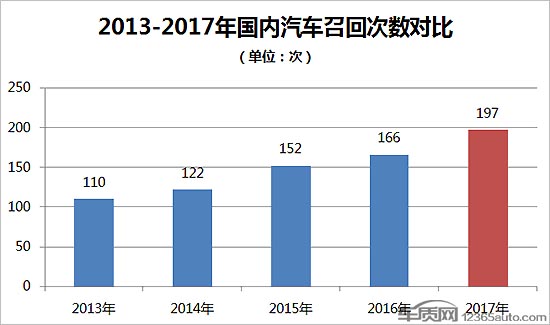
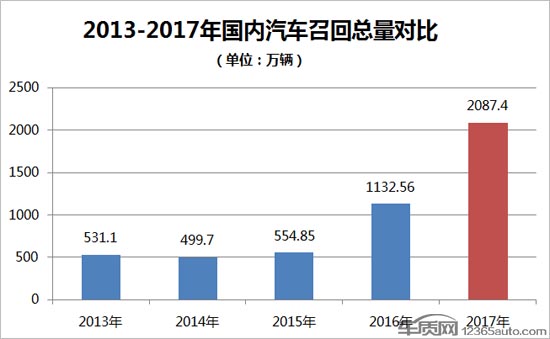
Judging from the number of recalls in each year, the number of domestic car recalls in 2017 peaked and the number of recalls was nearly 200. After a horizontal comparison, we found that the number of domestic automobile recalls has increased year by year from 2013 to 2017. Judging from the total amount of recalls, after the total number of domestic vehicle recalls exceeded 10 million units for the first time in 2016, the total number of domestic recalls broke new height again in 2017. The performance of 20.874 million vehicles increased by 84.3% compared to 2016, which is a The total annual recalls between 2013 and 2015 also remained at around 5 million vehicles. However, it is undeniable that the surge in the total number of domestic recalls in the past two years is indeed inseparable from the continuous fermentation of Takada's airbag incident.
In the domestic auto recall in 2017, the Ashkenazi brands had the most number of recalls, up to 61 times, exceeding the 44 recalls of Japanese brands during the same period. The U.S. and European brands are also actively eliminating potential safety hazards, and the number of recalls has reached 27 times. It is worth mentioning that both Volkswagen Group and General Motors Group issued an unprecedented single-call recall in the second half of the year, recalling 4.86 million vehicles and nearly 2.53 million vehicles involving Takada airbags. In addition, self-owned brands issued recalls 19 times this year, and recalled a total of 1,427,700 automotive products with potential safety hazards.
According to data released by the General Administration of Quality Supervision, Inspection and Quarantine (AQSIQ), there were 13 recalls of more than 500,000 vehicles in 2017, and only 6 in 2016, indicating that the 2017 recall was unprecedented. Among them, the top issues are airbag and seatbelt problems, engine shut-off, steering failure, and fuel leakage, which are related to personal safety issues. Among them, the number of recalls of airbags and seat belts was less than that in 2016, but the total recall amounted to more than 10 million units. Although the number of engine shutdown problems was small, the total number involved was more than 1.84 million, because the Volkswagen Group had fuel oil. The number of pump defects recalled a total of 1.818 million vehicles. In addition, more than one million vehicles were recalled due to steering failures and fuel leakage problems.
The main features of the 2017 domestic recall are as follows:
1, Takata airbags will create a single car parts recall myth
In 2017, 19 recall incidents involving “blasting of airbag gas generator casings and causing debris to fly out†involved nearly 10 million vehicles. There were two large-scale recalls that took second place in the 2017 auto recall ranking. Such a record may be only Can be created by Takata Airbags. Affected by this, the total number of domestic car recalls in 2017 exceeded 20 million, which may not be surpassed for some time. Takata Corporation also formally filed for bankruptcy protection in Japan on June 26, 2017 due to total liabilities exceeding 1 trillion yen (approximately RMB 61.45 billion).
If we say that in 2016 the Japanese automakers were the biggest victims of the Takada airbag incident, then the 2017 Takada airbags will undoubtedly become the “nightmare†for German and American car companies. Compared with the recall of 1,823,700 vehicles by Honda in 2016, the two recalls of the Volkswagen Group and the General Motors Group in 2017 can be said to be a model for “astronomical figures†in the history of domestic recalls. Only the 700 million vehicles involved in these two recalls have far exceeded the sum of the vehicles that Takada Airbag recalled in 2016.
2. AQSIQ strengthens supervision of Liguo Limin
Judging from the overall recall situation in 2017, most car manufacturers and component manufacturers can have a strong sense of social responsibility and try to ensure that global recalls are implemented simultaneously. However, this did not overshadow the determination of the AQSIQ to strengthen defect investigations and the fruitful results achieved. According to relevant reports, in 2017, the AQSIQ carried out defect investigations and caused 58 recalls and recalled 13.58 million defective vehicles, accounting for nearly 70% of the total recalls in the same period. What is more worth mentioning is that the top three large-scale recall incidents in 2017 were all prompted by AQSIQ's involvement in investigations or interviews. With the exception of Takata Airbags, the investigation of Volkswagen Group's problem of vehicle flameout due to defects in fuel pumps not only allowed the Volkswagen Group to recall 1.818 million vehicles in China, but also became the world leader in recalls. In fact, the active recall refers to the attitude of car companies to consumers, and the auto companies that do not voluntarily recall them do not show that their products have no design flaws or quality problems. This shows that the strengthening of supervision by the AQSIQ is absolutely beneficial to the country and the people.
3. Some self-owned car companies have a sense of social responsibility to catch up with joint ventures/imports
According to the data, in 2017, the total number of recalls by autonomous car companies reached 1,428,700, and the number of recalls reached 19, of which Baojun Automobile recalled 93.87 million single fuel injection leaks due to fuel pipe cracks, second only to the above three recalls. Fourth place in the Annual Recall List. However, the difference is that the recall is based on the "Defective Automobile Product Recall Management Regulations" and the "Defective Automobile Product Recall Management Regulations" requirements, and the initiative to file a recall plan with AQSIQ, in a sense It is said that the sense of social responsibility embodied by Baojun Automobile is even stronger than that of some joint ventures/imported car companies. What's more worth mentioning is that only 19 of the 19 recalls of self-owned brands were recalled after the AQSIQ's involvement in the investigation, and most of the autonomous car companies can take the initiative to file for the case. This shows that the domestic recall environment is gradually Improvement is no longer a subject of criticism.
4. Changes in recall activities and remedial measures
Another major aspect of the 2017 recall may be the change of recall activity and remedial measures. The data shows that there were 7 recall changes in 2017, and this phenomenon has not been seen before. Take BMW as an example, the two recalls that were previously announced on December 23, 2016 and February 6, 2017 changed from August 1, 2017 and October 9, 2017 to November 13, 2017. day. The reason for this is the delay in the supply of airbag gas generators for the recall of repairs, resulting in the abolition of the original recall plan. In fact, the recall delay is a certain risk. If there is a problem with the vehicle airbag during this change, all losses incurred will be borne by BMW Brilliance and BMW (China). In the event of casualties, it will cause irreparable damage to the owner of the vehicle.
In addition, the technical remedial measures of FAW-Volkswagen's new Sagitar recall in 2017 are also a major highlight. As early as 2014, Volkswagen had recalled the failure of the new sagittal coupled rod rear axle longitudinal arm, and its maintenance measures were “Installing metal liners on the rear axle armâ€. After three years, FAW-Volkswagen researched and developed the rear suspension electronic monitoring system, and carried out bench tests, vehicle road tests, and reliability tests. The relevant owners will be installed for free in the near future. Although some car owners may have already changed cars for a number of years, the FAW-Volkswagen attitude is still worthy of recognition.
In order to facilitate consumers to more clearly understand the domestic recall situation in 2017, the vehicle quality network will be sorted out by the AQSIQ and will be sorted according to the number of recalls from the largest to the smallest, among which the two recalls involving multiple defects in multiple cars will be demolished. Points, and ultimately reached the following rankings:
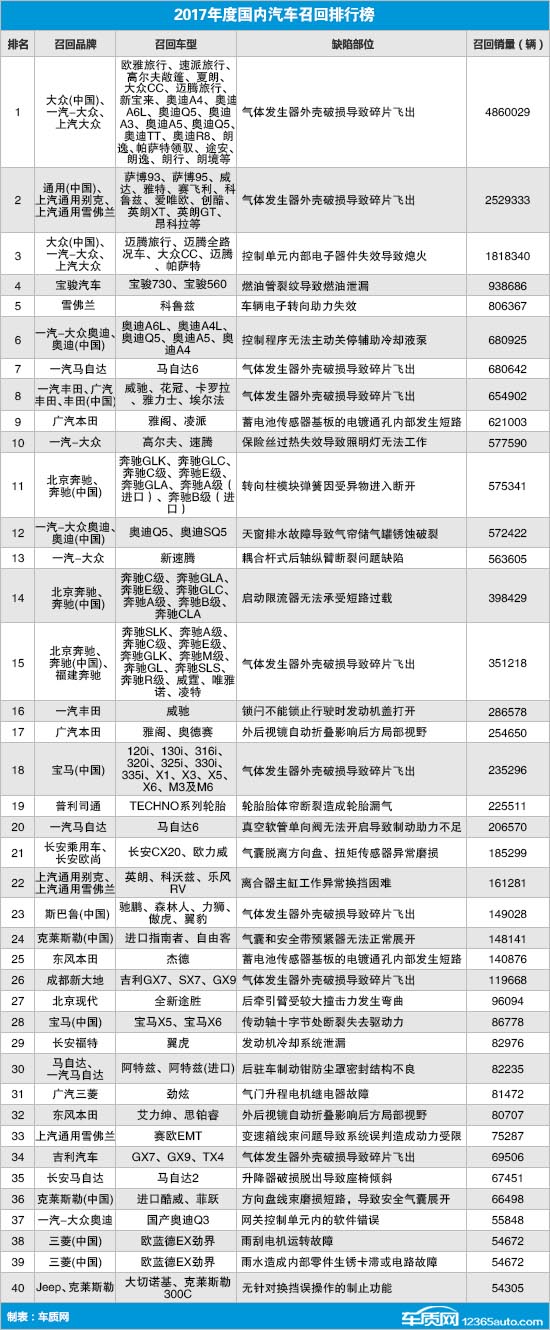
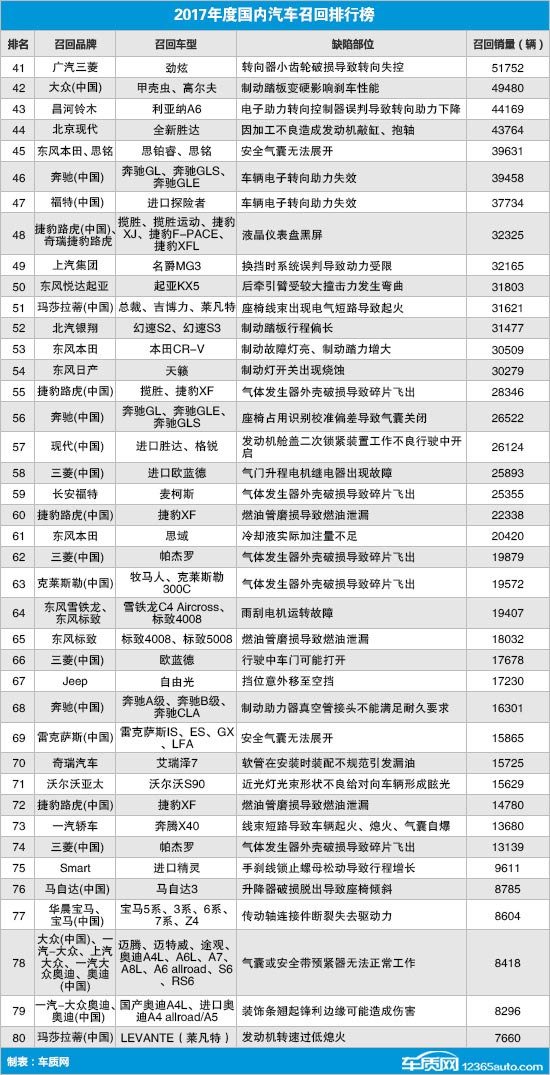
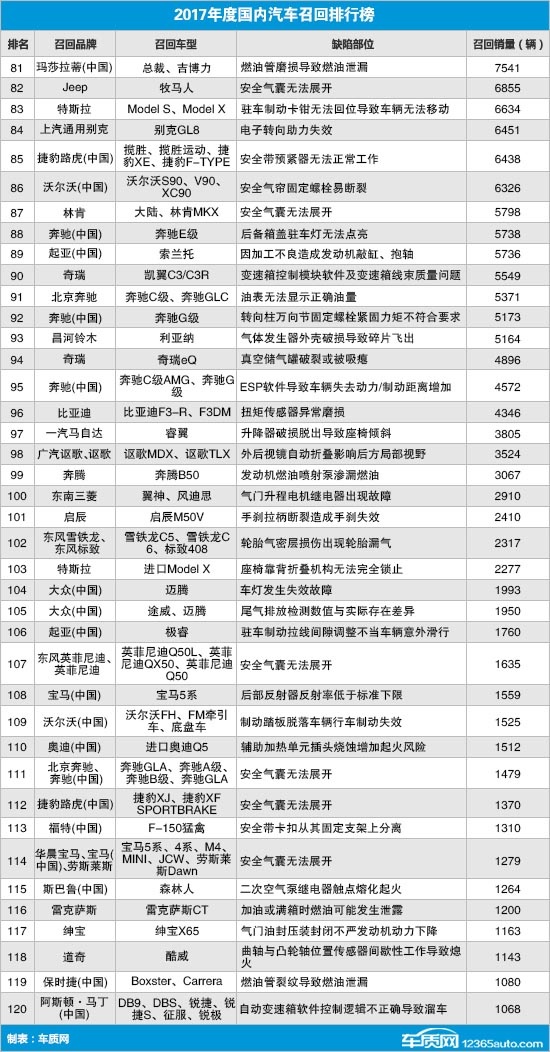
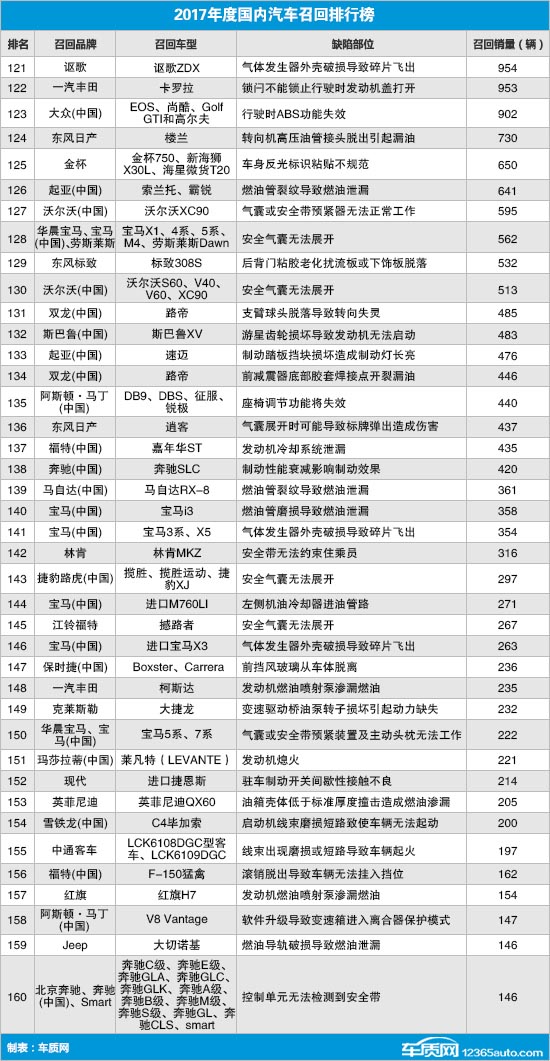
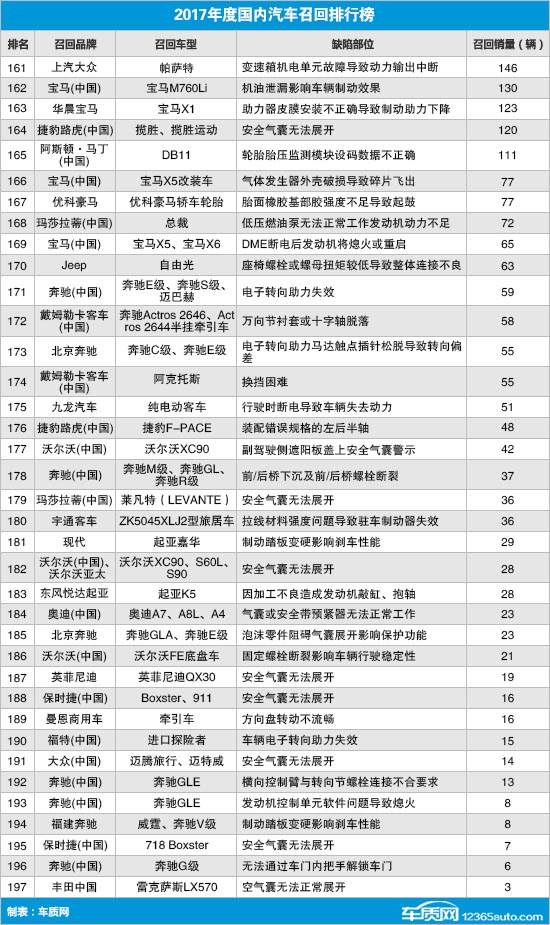
LOX/LN2/LAR/Other Cryogenic Liquid Storage Tank
Normally the type of single containment (single integrity) tanks are used for storing LOX/LN2/LAR and other cryogenic liquid. It consists of an inner vessel and an outer shell that are field constructed on an insulated foundation. The space between the inner and outer vessels is insulated, usually with expanded perlite and dry nitrogen.
Doer flat bottom storage tanks form an integral part of the production process of industrial gases. They are typically large volume tanks that contain mainly either liquid nitrogen or oxygen, also some are in argon service.
Doer Gas & Chemical Equipment is one of the most fast-growing industrial gas solution providers from China, integrating design, manufacture, installation, commissioning & more.
Doer's single containment storage tanks have a capacity of 200-5,000 m3 and pressure of 10-50 kPa.
Cryogenic Liquid Tank,Cryogenic Tanks,Cryogenic Container,Cryogenic Oxygen Tank
China Doer Gas & Chemical Equipment Co., Ltd. , https://www.doercryo.com